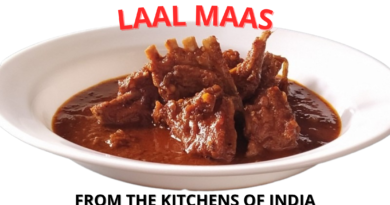Murukan Rajan Achary: The Craftsman Of Beautiful Aranmula Metal Mirror
Aranmula is a small temple town on the bank of the Pampa River, declared a heritage village by Kerala Tourism, and located about 100 km from Thiruvananthapuram, the capital of the state of Kerala, India. The town is frequently visited by Vaishnav pilgrims to see Parthasarathi (as Krishna was called when he acted as the charioteer of the Pandava brother Arjuna) Temple. The town is also famous for its annual boat race and traditional craft, the “Aranmula Kannadi,” or the Aranmula Metal Mirror. Made of metal, the mirror is an example of India’s mastery over metallurgical techniques.
Centuries ago, eight craftsmen and their families from Tamil Nadu were brought by the Royal Chief to Aranmula to work in the Parthasarathi temple. During their work, the craftsmen presented a crown to the king that contained the mirror as part of the decoration. The craftsmen had come upon a special alloy while working at the
Parthasarathi Temple had different metals that had sharp reflective properties and doubled up as mirrors. The King, pleased with their metallurgical skills, invited these craftsmen to stay back in Aranmula. Some of them did, and they continued to make the special mirror. The preparation of this mirror is still a secret, although it is known that the alloy is a mixture of copper and tin.
The mirror is considered auspicious and a symbol of good luck. It is part of the “astamangalya,” or the eight auspicious objects displayed during religious and social functions, including New Year’s celebrations, marriages, etc. Last week, I got the golden opportunity to meet Murukan Rajan Achary, descended from this family of temple artisans and craftsmen from Tirunelveli district in Tamil Nadu. He is the son of the late Shri. Rajan Achary and Smt. Kanakammal. The late Shri. Rajan Achary was the craftsman at Aranmula Metal Mirror for more than five decades. On meeting him, the first question that came to mind was, “What makes an aranmula kannadi different from an ordinary mirror?” In response, he said that unlike traditional mirrors, which have a silver nitrate coating at the back, the Aranmula mirror is polished out of a rare combination of metal alloys, with only a few Vishwakarma families being familiar with the details of the technique used to produce it. He showed that by placing a piece of paper vertically on an ordinary mirror, there is a slight gap between the mirror and the object, but the same experiment done on Aranmula Kannadi showed no gap.
Murukan Rajan Achari took after the ancestral way and specialised in the traditional craft of Aranmula Metal Mirror. He holds an artisan identity card issued by the Ministry of Textiles, Government of India. He keeps the family tradition alive and strong with his skilled craftsmanship, making him one of the most sought-after Aranmula metal mirror artisans the country has seen. He helped his father with metal mirror making from a young age. He has been completely focused on the metal mirror, actively carrying out the manufacturing of the metal since 2003. He is honoured with ‘Brahmsree’ status from Sri Adhisivalingacharya Swamigal Aadheenam, Agila Bharatha Viswakarma Jegadhguru. He has conducted various classes on Aranmula Mirror in various government colleges. He has participated in various textile exhibitions like the Kerala Khadi and Village Industries Board Exhibition and the National Handicraft and Heritage Festival conducted by the Aranmula Heritage Trust. He has received an award from Bharat Sevak Samaj (the National Development Agency established by the Planning Commission, Government of India) for the self-dedicated services that foster national rejuvenation and social development. I asked him what situation they had to face during the flood in 2018. While answering my question, he became emotional and said there were finished and half-finished mirrors worth ₹10 lakh in his workshop alone. He also lost all his equipment and work yard. Aranmula has 26 mirror-making units, and 22 of them were damaged in the floods. They asked banks to give us loans to stand on our feet; otherwise, this beautiful craft would become history. Manju Mangalam is the better half of Murukan Rajan Achary. She is a well-known mural artist. At the end of our conversation, Murukan Rajan gifted me a beautiful mural painting of Lord Krishna. It was very nice to hear from him that his son and daughter have started helping their father from a young age, and they too are interested in continuing the tradition of this unique craft of aranmula. Thus, it is in the hands of the youth to pass on the Indian culture to generations to come and keep it alive forever.




